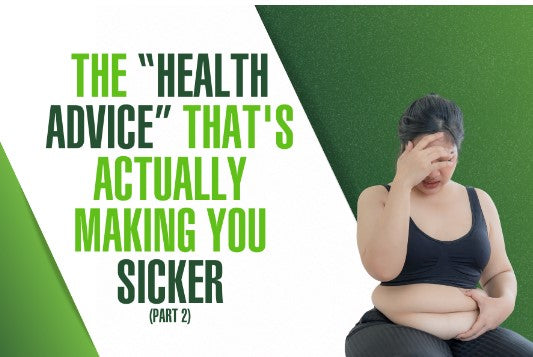
We’ve talked about intermittent fasting before, but as a quick refresher, it’s a powerful way to detoxify your body and accelerate weight loss. Not only that, but people who try it report that they sleep better, have more energy, and their mental clarity improves.
What I love most about intermittent fasting is that it resets the metabolism, so your body starts to run on fat for its fuel source, and not on sugar or carbs, which just leads to a vicious cycle of craving more sugar and carbs.
It’s not a true fast and it’s also not a diet – instead, it’s a limit to the number of hours during the day that you consume food.
What that means is that you select an 8-hour window during the day to eat, and the other 16 hours out of 24 you fast. So for instance, you eat from 10:00 AM to 6:00 PM, and fast after 6:00 in the evening until 10:00 the next morning.
During that 8-hour window, you can eat as much as you want, and you can also eat anything you want. I recommend you strive for the 80/20 alkaline lifestyle as much as possible to achieve the greatest results.
This is NOT about deprivation or restricting calories. With that said, you do not want to have a grazing approach. Instead, focus on 2 meals (3 max) within that 8 hour time period. The goal of the 8 hour time restriction, and the 3 meals within that time period is to lower the insulin levels in your body.
When insulin levels drop, the body shifts from sugar for fuel, to fat. Fat is a much cleaner burn, and the energy created by fat burning can last for a long time.
So there’s really a lot of control you have over how and when you fast.
What I’ve always recommended is that you start slow. It may take a few weeks to adjust to this lifestyle. It has to be done gradually. So start by doing an intermittent fast once a week or once every other week and really listen to your body’s needs.
It may take a few weeks or so before you shift to fat-burning mode, but once you do, the benefits are endless. For one, your cravings for unhealthy acidic foods and carbs will gradually disappear. This is because you’re now burning your stored fat and do not need to rely on new fast-burning carbs for fuel.
But also realize to get to you that fat-burning lace quicker, you need to cut the sugar and the grains. It is very hard (in fact, it’s impossible) for your body to reach a state of ketosis, or where your body utilizes fat for fuel, when you’re fueling it with carbs.
Why It’s Different for Women and Men
So remember how I said that you have to start gradually? This is where the difference for women and men really comes in.
What happens for a lot of people who try intermittent fasting is this… They are ready to lose weight and get healthier, so they dive right in. They don’t take it slow.

The result this has, especially for women, is that after a few days or a week, they’re sick of feeling hungry, they’re fatigued and cranky, and they just crash.
They have to stop.
Why does this happen? It’s not because of a lack of discipline, or a misunderstanding of how to do the fast correctly.
It’s simply that fasting sends women’s hormones into chaos.
Here’s why… And by the way, this has important implications for any diet a women tries, so whether you’re doing intermittent fasting or not, this is valuable knowledge.
Women’s bodies go on high alert at the first sign of starvation.
This is a throwback to hunting and gathering days when starvation was a real issue for our species. In case a woman was pregnant or soon would become pregnant, any sign of hunger would lead to an increase in the production of hunger hormones.
Back then, that would ensure a woman would get some nourishment to protect a fetus or prepare for one.
What happens when a woman fasts or tries an extreme diet is that those hunger hormones grow louder and louder because the body isn’t being heard. Women experience more and more symptoms of hunger until they finally crash, and give in to their bodies’ needs.
Of course, that leads many women to feel guilty or as if they have failed, when really, their body just succeeded at doing what the female body is made to do.

So does this mean women can’t do intermittent fasts?
Absolutely not!
If you’ve tried intermittent fasting before and thought you failed, or if you want to give it a try, I’ve got good news for you. There is another way.
While everyone, men and women alike, need to take fasting slow at first, women need to continue on a modified path as they fast.
Modified Intermittent Fasting
Here’s the pace I recommend to women.
- Start fasting for 12 hours at a time, with a plan to gradually work your way up to 16 hours. So on fasting days, eat between 7:00 AM and 7:00 PM, and after a couple of weeks, adjust that to 8:00 AM to 7:00 PM, moving toward the 8-hour window.
- Don’t fast every day. Even after you get started successfully, spread fasting days out throughout the week, so fast on Monday, Wednesday, and Friday, taking the other days off in between to give your body a chance to recuperate. This way, hormones won’t go into high alert, sending out those hunger signals.
- On fasting days, take it easy. Don’t strain your body with high intensity workouts. Practice yoga, stretching, or meditation instead.
- Don’t deprive yourself. Make sure you eat plenty of food to keep yourself full in between fasts. Enjoy lots of nutrient-dense fats and proteins like avocado and flax seeds, gluten-free carbohydrates like quinoa and sweet potatoes, and plenty of veggies.
- Drink water even when you’re fasting. Make sure you’re staying fully hydrated with well-filtered, alkaline water at all times, especially when you’re fasting. Continue taking Alkamind Daily Minerals and other supplements with water before going to bed, even on fasting days.
 End your fasting periods with Alkamind Daily Greens, which will replenish the liver after a night spent fighting acid. It’s a mega-dose of the dark greens your body wants.
End your fasting periods with Alkamind Daily Greens, which will replenish the liver after a night spent fighting acid. It’s a mega-dose of the dark greens your body wants.
I think you’ll find this is a much easier and much more sustainable experience with intermittent fasting, and I know you’re going to love the results.
 Skip to content
Skip to content



 End your fasting periods with
End your fasting periods with 


1 comment
Hello from beautiful Montana,
Thanks so much for caring and sharing. I have been advised by my physical therapist to lose ten pounds and it would relieve forty pounds of pressure on my knees.
IF is fascinating to me and I will try it.
Judy Helm Wright—Author/Publisher/Intuitive Wise Woman